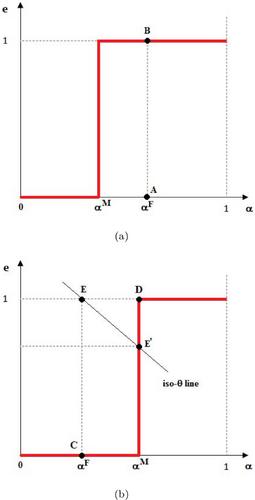当扶贫小额信贷机构偏向更富有的借款人时:道德风险故事
IF 1.3
4区 经济学
Q3 ECONOMICS
Canadian Journal of Economics-Revue Canadienne D Economique
Pub Date : 2023-11-12
DOI:10.1111/caje.12694
引用次数: 0
摘要
我们建议解释 "使命漂移 "的存在,即小额信贷机构(MFIs)倾向于将钱贷给更富有的借款人,而不是非常贫穷的人。我们重点关注小额信贷机构与外部供资机构之间的关系。我们假定小额信贷机构和供资机构都是扶贫的。然而,由于小额贷款机构在确定优质项目方面所做努力的信息不对称,可能会增加向较富裕借款人发放贷款的比例。出现这种情况的原因是,供资机构必须为小额金融机构制定激励措施,从而在受资助项目的质量和向较贫困借款人发放贷款之间进行权衡。本文章由计算机程序翻译,如有差异,请以英文原文为准。

When pro-poor microcredit institutions favour richer borrowers: A moral hazard story
We suggest an explanation for the existence of “mission drift,” the tendency for Microfinance Institutions (MFIs) to lend money to wealthier borrowers rather than to the very poor. We focus on the relationship between MFIs and external funding institutions. We assume that both the MFIs and the funding institutions are pro-poor. However, asymmetric information on the effort chosen by the MFI to identify higher-quality projects may increase the share of loans attributed to wealthier borrowers. This occurs because funding institutions have to build incentives for MFIs, creating a trade-off between the quality of the funded projects and the attribution of loans to poorer borrowers.
求助全文
通过发布文献求助,成功后即可免费获取论文全文。
去求助
来源期刊
CiteScore
2.20
自引率
6.20%
发文量
86
期刊介绍:
The Canadian Journal of Economics (CJE) is the journal of the Canadian Economics Association (CEA) and is the primary academic economics journal based in Canada. The editors seek to maintain and enhance the position of the CJE as a major, internationally recognized journal and are very receptive to high-quality papers on any economics topic from any source. In addition, the editors recognize the Journal"s role as an important outlet for high-quality empirical papers about the Canadian economy and about Canadian policy issues.

 求助内容:
求助内容: 应助结果提醒方式:
应助结果提醒方式:


